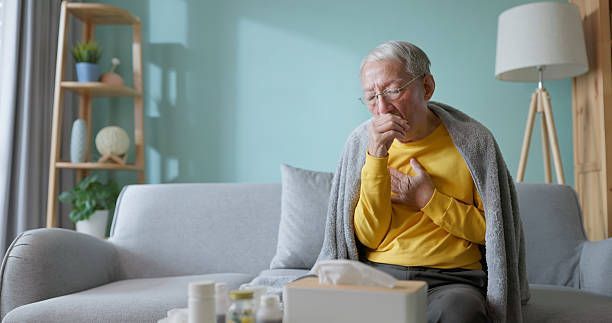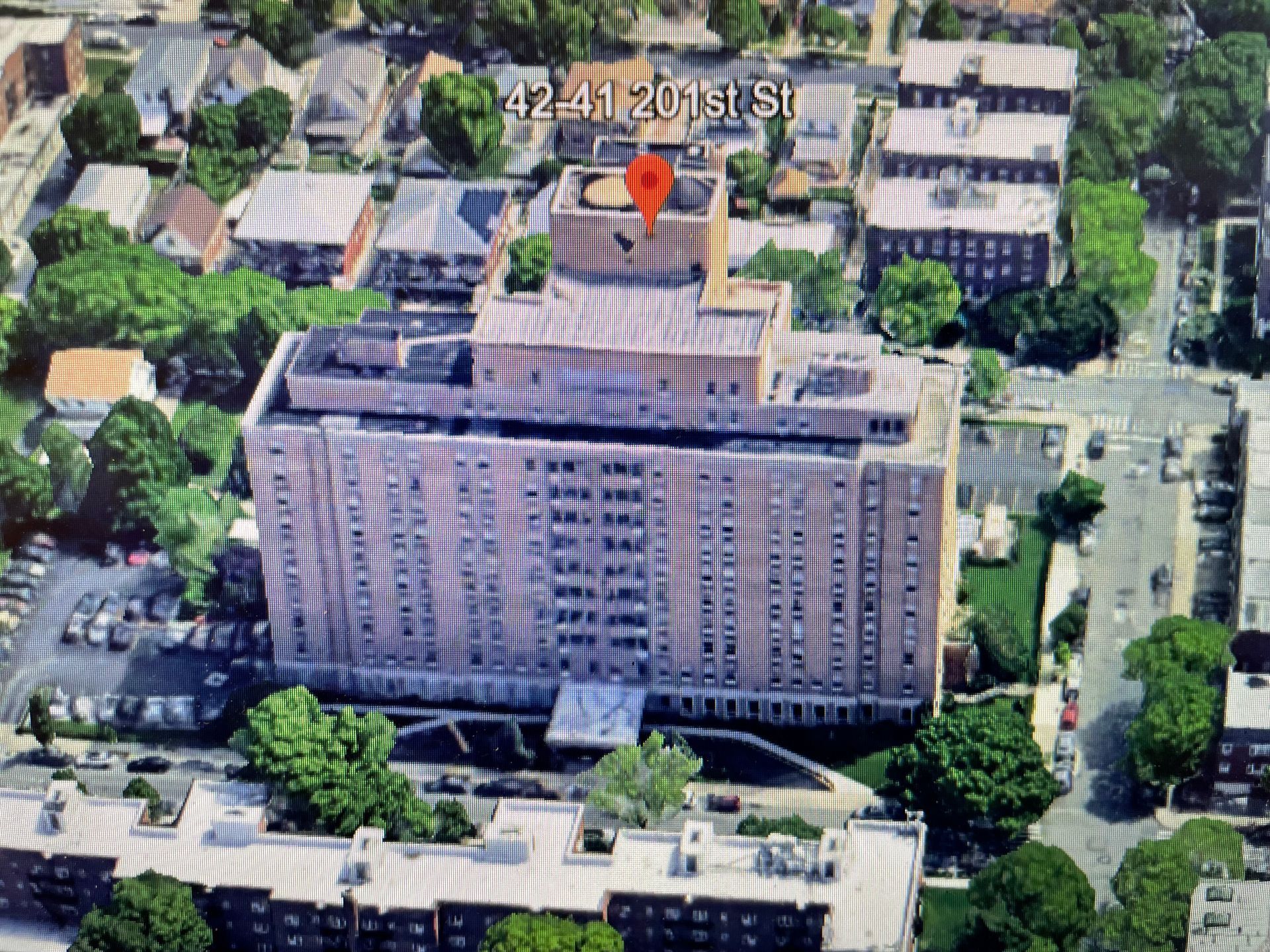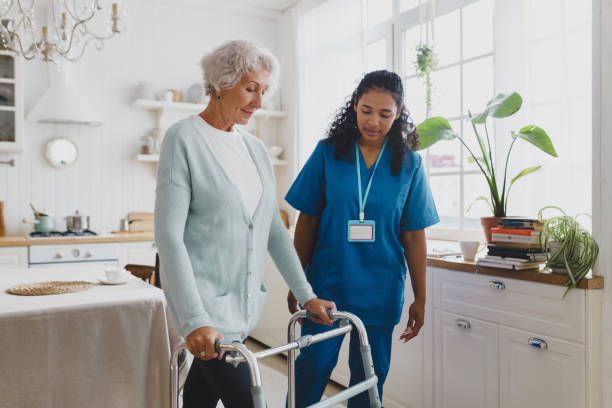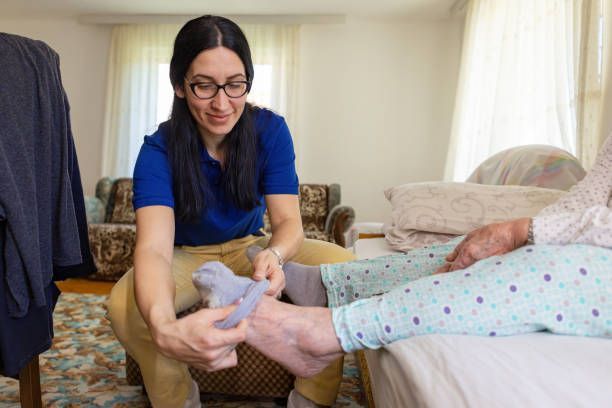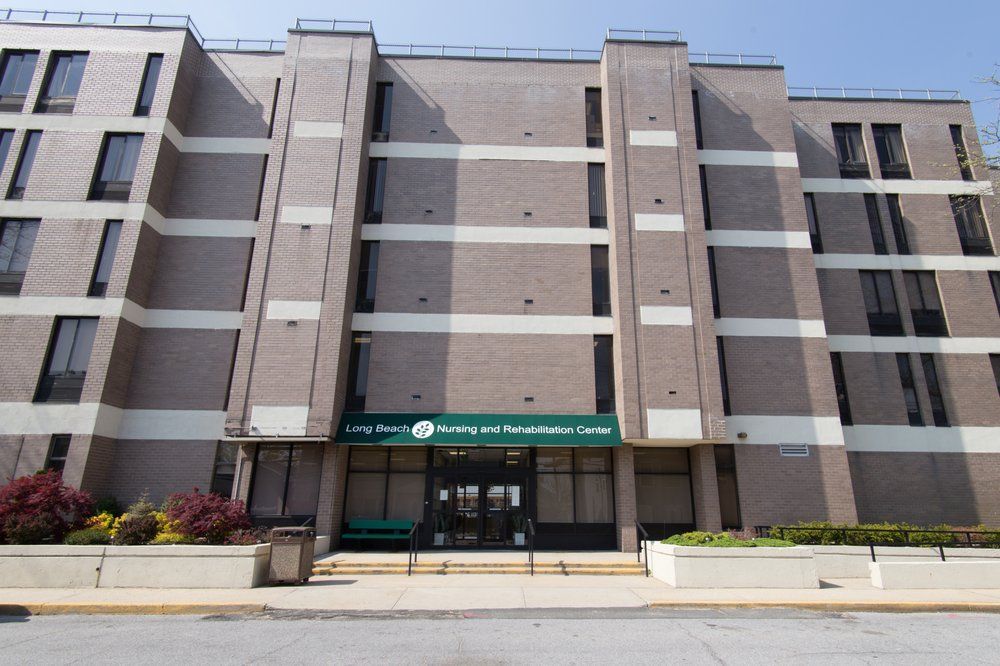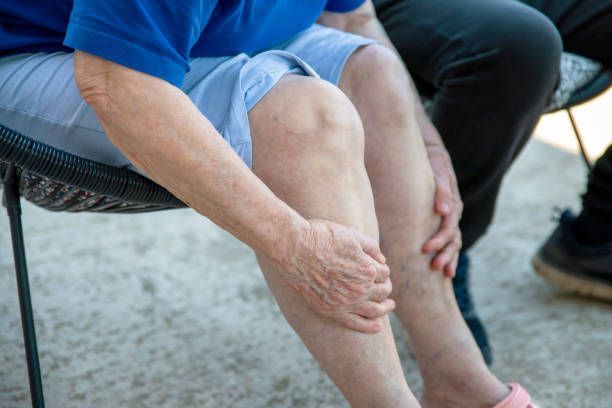7 Essential Tips for Seniors to Improve Sleep Quality
7 Essential Tips for Seniors to Improve Sleep Quality
The National Sleep Foundation explains "aging is tied to numerous health concerns. Poor sleep can contribute to many of these problems, reducing quality of life in people as they get older. In order to address the unique needs of older adults, it is more important than ever to understand the effects of aging on sleep and overall health."
According to Yale Medicine "though it is often said that people need less sleep as they age, the current recommended sleep guidelines for all adult age groups are almost identical. According to the National Sleep Foundation, people between 18 and 64 should aim for seven or more hours of sleep a night; people 65 and older should get seven to eight hours each night.
Still, the sleep patterns of older people are impacted by multiple factors, from medical conditions to medications says Brienne Miner, MD, MHS, a Yale Medicine geriatric and sleep medicine specialist. “Medical conditions can cause pain or other sleep-disruptive symptoms, or people can be on medications that could make them very sleepy during the day and make it hard for them to sleep at night,” Dr. Miner says. “Or, interestingly, those medications might cause or worsen an underlying sleep disorder.”
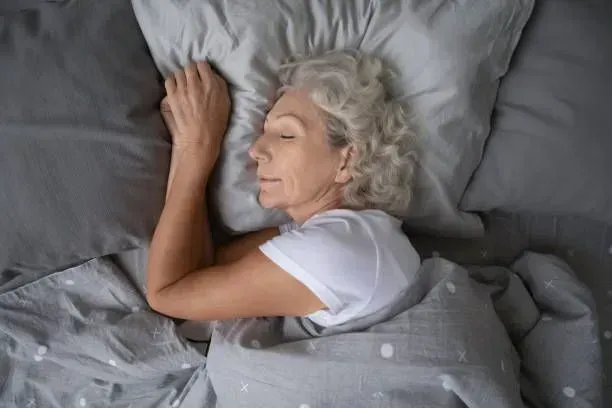
As we age, our sleep patterns tend to change, making it more challenging to get a good night's rest. At 7 Day Home Care, we understand the importance of quality sleep for seniors' physical and mental well-being. That's why we've compiled seven essential tips to help seniors improve their sleep quality and enjoy better overall health.
Why Seniors Find it Increasingly Difficult to Sleep:
As we age, changes in sleep patterns are common due to a variety of factors, including:
- Changes in Circadian Rhythms: As we age, changes in circadian rhythms occur due to alterations in the body's internal clock, making it more difficult to sleep. This natural shift often leads to earlier bedtimes and wake-up times in older adults. Factors such as reduced production of melatonin, a hormone that regulates sleep-wake cycles, and changes in the brain's response to light exposure can contribute to disruptions in circadian rhythms. Additionally, older adults may experience more frequent nighttime awakenings and lighter sleep, further exacerbating sleep difficulties. These changes in circadian rhythms highlight the importance of establishing consistent sleep routines and creating sleep-friendly environments to promote better sleep quality as we age.
- Medical Conditions: As we age, the prevalence of medical conditions that can disrupt sleep tends to increase, making it more difficult to achieve restful sleep. Conditions such as arthritis, chronic pain, gastrointestinal issues, and neurological disorders like Parkinson's disease or dementia can cause discomfort, pain, or other symptoms that interfere with falling asleep or staying asleep throughout the night. Additionally, conditions like sleep apnea, restless leg syndrome, and periodic limb movement disorder become more common with age, further complicating sleep patterns. Medications prescribed to manage these medical conditions may also have side effects that affect sleep quality, such as causing drowsiness during the day or contributing to nighttime awakenings. Managing underlying medical conditions and addressing sleep disturbances through lifestyle changes or medical interventions are essential for promoting better sleep among older adults.
- Mental Health - Anxiety and Depression: As individuals age, they may be more susceptible to experiencing anxiety and depression due to various life changes, health concerns, or losses. These mental health conditions can significantly impact sleep quality by causing difficulty falling asleep, frequent awakenings during the night, or early morning awakenings. Persistent worry, rumination, or negative thoughts associated with anxiety and depression can make it challenging to relax and unwind before bedtime, leading to heightened arousal and difficulty transitioning into restful sleep. Additionally, imbalances in neurotransmitters such as serotonin and norepinephrine, which regulate mood, can also affect the sleep-wake cycle. Addressing underlying anxiety and depression through therapy, medication, or other interventions can be essential in improving sleep quality and overall well-being in older adults.
- Medications: As individuals age, the use of medications becomes more prevalent to manage various health conditions, yet certain medications can inadvertently disrupt sleep patterns. Many medications commonly prescribed to older adults, such as antidepressants, beta-blockers, and diuretics, may have side effects that affect sleep quality. These side effects can include increased drowsiness during the day, nighttime awakenings, or disturbances in REM (rapid eye movement) sleep. Furthermore, some medications can alter the body's natural sleep-wake cycle or interfere with the production of sleep-regulating hormones like melatonin. Consequently, older adults may find it increasingly challenging to achieve restful sleep due to the effects of medications. Consulting with healthcare providers to review medication regimens and explore alternative treatments with fewer sleep-disruptive side effects can be crucial in improving sleep quality for seniors.
Why Sleep is Vital to Good Physical and Mental Health:
Quality sleep is essential for seniors' physical and mental well-being for several reasons:
- Physical Health: Quality sleep is crucial for maintaining optimal physical health in seniors. During sleep, the body undergoes essential processes such as tissue repair, muscle growth, and hormone regulation, all of which are vital for overall well-being. Adequate sleep is particularly important for seniors as it supports immune function, helping to defend against infections and illnesses. Moreover, quality sleep plays a significant role in regulating metabolism and appetite, reducing the risk of obesity and related health conditions such as diabetes and heart disease. Seniors who consistently experience poor sleep are at a higher risk of developing chronic health issues and experiencing declines in physical function. Therefore, prioritizing quality sleep is essential for promoting longevity and maintaining a high quality of life in older adults.
- Cognitive Function: Quality sleep is paramount for maintaining optimal cognitive function in seniors. During sleep, the brain consolidates memories, processes information, and clears toxins accumulated throughout the day, crucial processes for learning and memory retention. Seniors who experience sleep disturbances or deprivation often exhibit cognitive deficits, including difficulties with concentration, problem-solving, and decision-making. Chronic sleep problems have been linked to an increased risk of cognitive decline and neurodegenerative diseases such as Alzheimer's disease and dementia. Therefore, ensuring seniors get sufficient, uninterrupted sleep is vital for preserving cognitive health and promoting overall well-being as they age.
- Emotional Well-being: Quality sleep plays a pivotal role in preserving emotional well-being among seniors. Adequate and restorative sleep is essential for regulating mood, managing stress, and enhancing resilience to emotional challenges. Seniors who experience poor sleep are more prone to mood disturbances such as irritability, anxiety, and depression. Additionally, chronic sleep deprivation can exacerbate preexisting mental health conditions and contribute to a reduced sense of overall well-being. Prioritizing quality sleep enables seniors to better cope with life's stressors, maintain a positive outlook, and enjoy a higher quality of life in their golden years.
The Risks of Poor Sleep Over an Extended Period:
Chronic sleep deprivation can have serious consequences for seniors' health and well-being, including:
- Increased Risk of Falls: Poor sleep can impair balance, coordination, and reaction times, increasing the risk of falls and fall-related injuries among seniors.
- Cognitive Decline: Prolonged sleep disturbances have been linked to an increased risk of cognitive decline and dementia in older adults.
- Weakened Immune Function: Sleep deprivation can weaken the immune system, making seniors more susceptible to infections and illnesses.
- Reduced Quality of Life: Persistent sleep problems can significantly impact seniors' quality of life, leading to daytime fatigue, irritability, and difficulty performing daily activities.
7 Essential Tips for Seniors to Improve Sleep Quality
- Establish a Consistent Sleep Schedule: Seniors benefit greatly from establishing a consistent sleep schedule, aiming to go to bed and wake up at the same time every day, including weekends. This practice helps regulate their body's internal clock, known as the circadian rhythm, promoting better sleep quality over time. By adhering to a regular sleep routine, seniors synchronize their biological clock with external cues like daylight, optimizing the quality and duration of their sleep. Consistency is key in reinforcing healthy sleep patterns and ensuring seniors experience restorative rest each night, enhancing their overall well-being and vitality.
- Create a Relaxing Bedtime Routine: Implementing a relaxing bedtime routine is essential for seniors to prepare their bodies and minds for sleep. Engaging in calming activities before bed, such as reading, listening to soothing music, or taking a warm bath, signals to the body that it's time to wind down and transition into a restful state. These rituals help alleviate stress and tension accumulated throughout the day, promoting relaxation and facilitating the onset of sleep. Establishing a consistent bedtime routine cues the body to release sleep-inducing hormones, fostering a peaceful and rejuvenating night's sleep for seniors.
- Make the Bedroom Comfortable: Seniors should prioritize creating a comfortable sleep environment conducive to restorative rest. Ensuring the bedroom is dark, quiet, and at a comfortable temperature helps minimize disruptions and enhances sleep quality. Investing in a supportive mattress and pillows that adequately align the spine and alleviate pressure points promotes optimal comfort and reduces the likelihood of discomfort or pain interrupting sleep. By optimizing their sleep environment, seniors can create a sanctuary that promotes relaxation and fosters deep, uninterrupted sleep throughout the night.
- Limit Stimulants, Alcohol, and Heavy Meals Before Bed: Seniors should be mindful of their consumption of stimulants, alcohol, and heavy meals close to bedtime, as these can significantly impact sleep quality. Caffeine and nicotine, found in coffee, tea, and cigarettes, are stimulants that can disrupt the sleep-wake cycle and inhibit the ability to fall asleep. Similarly, alcohol consumption, while initially sedating, can disrupt sleep patterns and lead to fragmented, less restorative sleep. Heavy or spicy meals close to bedtime can cause discomfort, indigestion, and acid reflux, further impeding sleep quality. Seniors should prioritize consuming lighter, well-balanced meals earlier in the evening to promote digestion and facilitate a more restful night's sleep.
- Stay Active During the Day: Engaging in regular physical activity during the day is essential for promoting better sleep at night for seniors. Incorporating at least 30 minutes of moderate exercise most days of the week, such as walking, swimming, or gardening, helps regulate the sleep-wake cycle and promotes deeper, more restorative sleep. Physical activity increases the production of serotonin and other neurotransmitters associated with relaxation and mood regulation, promoting a sense of well-being and reducing stress and anxiety levels. Additionally, exercise helps expend excess energy, making it easier for seniors to fall asleep and stay asleep throughout the night.
- Manage Stress and Anxiety: Seniors may find it beneficial to incorporate stress-reducing techniques into their daily routine to improve sleep quality and overall well-being. Practicing relaxation techniques such as deep breathing, meditation, or yoga can help alleviate stress and anxiety levels, promoting a sense of calmness and tranquility conducive to sleep. These mindfulness practices encourage seniors to focus on the present moment, quieting racing thoughts and worries that may interfere with falling asleep. By incorporating stress management strategies into their daily lives, seniors can cultivate greater emotional resilience and enhance their ability to achieve restful, rejuvenating sleep each night.
- Seek Professional Help if Needed: If seniors continue to struggle with sleep despite implementing lifestyle changes and self-care strategies, it is essential to seek professional help from a healthcare provider. Sleep disorders such as insomnia, sleep apnea, or restless leg syndrome may require medical intervention to effectively manage and improve sleep quality. Healthcare professionals can conduct a thorough evaluation to identify underlying causes of sleep disturbances and recommend appropriate treatments or therapies tailored to individual needs. By addressing sleep disorders and receiving proper medical care, seniors can regain control over their sleep patterns and experience the restorative rest they need to thrive and maintain optimal health and well-being.
Prioritizing quality sleep is essential for seniors' overall health and well-being. By following these tips and addressing any underlying sleep issues, seniors can improve their sleep quality and enjoy a better quality of life. At 7 Day Home Care, we're dedicated to supporting seniors in Manhattan, Queens, Brooklyn, Nassau County, and Suffolk County, New York, in achieving optimal sleep and overall wellness. To learn more about our attention to the details with respect to our home care services in Manhattan, Queens, Brooklyn, Nassau County, and Suffolk County, New York please call 516-408-0034 or visit 7 Day Home Care.
Brian Callahan
7 Day Home Care


